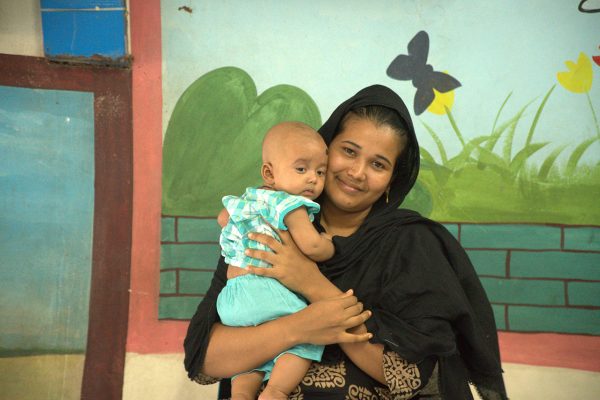The role of WASH in scaling up nutrition in Bangladesh
Reading Time: 3 minutes
The 2011 Lancet series says that about 2.6 billion people lack access to proper toilet facilities and about 980 million young people under 18 live in homes without basic sanitation. Moreover, research has shown that unimproved hygiene, inadequate sanitation, and insufficient and unsafe drinking water account for about seven per cent of the total disease burden and 19 per cent of child mortality worldwide.
The following blog post was originally posted on WASH Advocates. It is part of their October 2013 series, “WASH & Nutrition: Partnering for a Healthier Future”, produced in partnership with 1,000 Days. Click here to read the original blog post. To read the entire series, click here.

The 2011 Lancet series says that about 2.6 billion people lack access to proper toilet facilities and about 980 million young people under 18 live in homes without basic sanitation. Moreover, research has shown that unimproved hygiene, inadequate sanitation, and insufficient and unsafe drinking water account for about seven per cent of the total disease burden and 19 per cent of child mortality worldwide. Undeniably therefore, Water, Sanitation and Hygiene (WASH) has multidimensional effects on different public health issues.
WASH’s impact on nutrition, maternal and child health, management of communicable diseases and on the overall health status were more or less neglected in the early 90s. But incorporating WASH-specific and sensitive components in recently formulated health policies reflect that the Bangladesh government places more importance on the impact WASH issues have on the economic emancipation and the overall health status of its citizens.
The best practices of WASH development programmes include increasing usage of safe drinking water, proper use of sanitary latrines and hand-washing before handling or eating food and after defecation; this will increase the nutritional status of women and children by reducing transmission of waterborne and communicable infections and diseases like diarrhoea.
The Civil Society Alliance for Scaling Up Nutrition, Bangladesh (CSA for SUN, BD) provides a platform to promote the 1,000 days’ approach through a multisectoral method. The platform will be used to spread WASH-specific messages across communities and government bodies, educating and sensitising them on WASH’s best practices. This will not only help in increasing WASH awareness among communities, but also contribute to improving their nutritional status.
Aligned with the seventh Millennium Development Goal, development organisations, WASH activists, and professional groups have taken many initiatives to improve WASH’s status in various countries. The Bangladesh WASH Alliance is composed of 14 members working to strengthen capacity, community ownership and community involvement. Development organisation BRAC, which is also the secretariat of CSA for SUN, BD, implements one of the largest WASH programmes to increase access to safe drinking water and proper sanitation through capacity development, community participation and spreading hygiene-specific messages across communities. Moreover, BRAC’s health, nutrition and population programme (HNPP) is also working to promote WASH-specific messages including hand-washing of mothers and children before eating and usage of proper sanitation and safe drinking water. In addition, general committee members of CSA for SUN, BD, WaterAID and Rangpur Dinajpur Rural Service (RDRS) are also working on field and policy levels to increase access to safe drinking water and proper sanitation and advocating to the government to improve its WASH-specific services.
Speaking on a Bangladesh Television (BTV) talk-show, Dr. Rukhsana Haider, chairperson of CSA for SUN, BD, highlighted the importance of intersectoral collaboration between the nutrition and WASH sectors, and promoted the best infant and young child feeding (IYCF) practices. She strongly emphasised the potential opportunities of using the platform to spread WASH messages, which are likely to also improve the nutritional status in our country. WASH and nutrition advocates should develop an effective strategy to incorporate the two components and give them adequate importance. We should pursue the Bangladesh government to ensure universal access to safe drinking water without arsenic contamination, proper sanitation and comprehensive hygiene promotion. Effective implementation of WASH interventions combined with nutrition would indeed contribute to uplifting the nutritional status of Bangladesh.
Kazi Amit Imran, is currently working at BRAC’s health, nutrition and population programme as manager (Communications)





